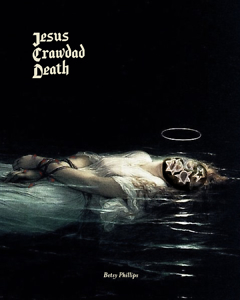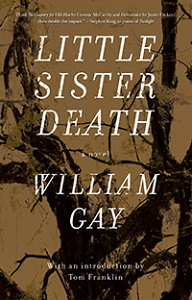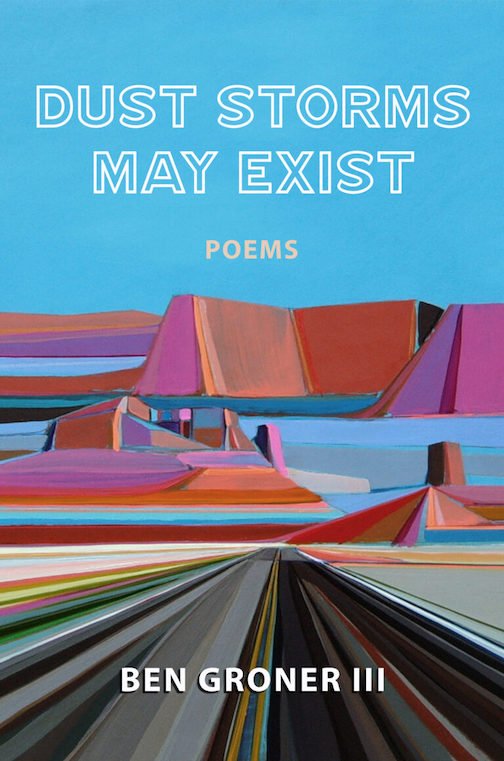William Gay
Book Excerpt: Jesus Crawdad Death
It’s a strange thing to call someone a self-taught writer. There is no other way to be a writer. All the fancy classes, prestigious workshops, rigorous writing groups are just wallpaper over correctly-hung drywall. The person making the decision about where to place the screws, how to tape the seams, that’s you. Someone can show you how they taught themselves to do it and you might find that lesson handy, but, in the end, there’s just you and the word that needs to come next and no one can teach you what word to put there. You have to teach yourself.
 But people like to believe that you have to have special training and the money to get that special training in order to do anything. People like to believe that ordinary people can’t say things worth listening to so that they are off the hook for not listening.
But people like to believe that you have to have special training and the money to get that special training in order to do anything. People like to believe that ordinary people can’t say things worth listening to so that they are off the hook for not listening.
For many, many years, they don’t bother to listen to William Gay.
William Gay writes sentences like lush perfect orchards full of fruit so ripe it’s right on the verge of rotting. Reading his books is like gorging yourself on what you’ve found in the compost pile of Paradise. It’s delicious, but some folks can’t get over the insult of being asked to value trash.
In the middle of dying, he writes a ghost story. The critical response to this story, which comes after he’s dead, is strange. Because William Gay now has this reputation for being a great writer, his ghost story gets mostly laudatory reviews.
It’s not a good book. It’s not even done. You can’t even decide when you read it if this is two-thirds of a sleek, scary story or one-third of some kind of operatic apocalyptic vision of the beginning and end of the South as it stands today.
No reader could love this book.
But, oh, this book is a treasure for writers. How often have you sat there with an incomplete draft, wondering if this can be both the best thing you’ve ever written and the worst? And here stands William Gay, with his incomplete draft. Look here at how he had this unsettling idea of the house seeming to breathe. See how he toys with the idea for a while and then drops it? He might have come back to it. He might have cut it all together. It reads like it’s on the verge of becoming a central motif in the book, but there’s no next draft, there’s no revision, no reconsideration. There’s just William Gay showing you how he works. See how much he has in place already here in the first draft. See the hollow spots he intends to fill in later. See what you can learn from it. Consider what you might teach yourself based on what you see here.
 The orchard is leafless. The back fence still half-built. The lane that runs through the trees peters out just past where you stand. But even now, the pears shine green-gold in the evening sun. The apples are sweet and the sight of the tight, red skin makes you ache to bite one. The fruit is there.
The orchard is leafless. The back fence still half-built. The lane that runs through the trees peters out just past where you stand. But even now, the pears shine green-gold in the evening sun. The apples are sweet and the sight of the tight, red skin makes you ache to bite one. The fruit is there.
William Gay watches the world for a long time before he has any success as a writer. He watches it from Hohenwald, Tennessee, and from Vietnam, and New York, and Chicago. He watches carefully. He sees Death all around. He watches the ways that young men flirt with her without them knowing that’s what they’re doing—the too-fast cars, playing chicken with the trains, the guns snuck out of their fathers’ cabinets and pointed at each other in a haze of beer and boredom. Death is the first real mystery of the universe that most people try to fuck with.
William Gay is always trying to watch carefully enough to see Death. He watches the faces of dying solders, sick cats, dead pigeons, hunted deer, trying to see exactly the moment when something shifts from alive to dead, trying to catch a glimpse of her. But Death is quick in the end, however long it takes her to get to you. One moment, you’re there, and the next you’re gone. The moment it happens is almost impossible to recognize. You see Death’s presence mostly in her wake.
But one bright morning, William Gay hears his old pit bull growling and barking at something. William Gay struggles to get up from his chair when he hears that dog go silent. His heart jumps. A quiet dog in these parts is too often a dead dog. So help him, if one of those assholes from down the lane has shot his dog… but no, now William Gay is at the screen door and he can see the dog getting belly rubs from this beautiful, young blonde girl. William Gay smiles wryly. Well, well, well, better hope we’re never attacked by a mob of attractive desperate meth heads because it’s clear now that the dog won’t be much protection.
He doesn’t blame the dog, though. The girl still has the charming self-confidence country girls have until life beats it out of them. Usually, by the time they’re this girl’s age, something bad enough has already happened that puts a hard edge on them, that lets you know that they’ve learned life is mean and they might have to be real mean to survive it. Not yet with her, though.
You know a different kind of man might have thought this an opportunity.
“Can I help you?” He calls out from behind the screen door. By this time, the dog is back up on its feet and it’s jogging away from the girl, turning its big block head back at her, as if the dog is begging her to chase it. It only takes that one look from the dog and the girl is off in joyful pursuit. Big, dusty loops in William Gay’s grassless yard. Well, you think, grassless is unfair. It’s been a dry summer. The grass has done the best it can.
“William Gay,” she calls out to him. God, her voice is so beautiful. He’s not surprised she knows him, though maybe he should be. “Do you know St. Francis of Assisi?”
He contemplates this for a moment. “Not personally, no.”
“What about William Faulkner?”
“Not him, either,” William Gay says.
“I do,” she says and maybe it’s her miracle friendship with his mean dog or maybe it’s just more obvious to him than most people that she’s not quite what she appears to be, but he chooses to believe her. She comes over to his front steps and sits down. He comes out of the house and joins her.

Copyright (c) 2018 by Betsy Phillips. All rights reserved. Phillips’s short fiction has appeared in The Magazine of Fantasy & Science Fiction and Apex Magazine. She is the author of A City of Ghosts and The Wolf’s Bane. She writes about history and politics for the Nashville Scene and occasionally for The Washington Post. She lives in White’s Creek.


